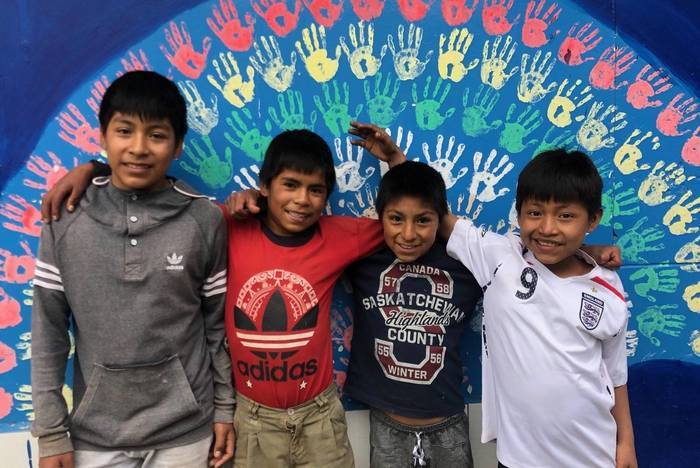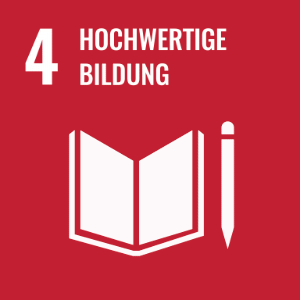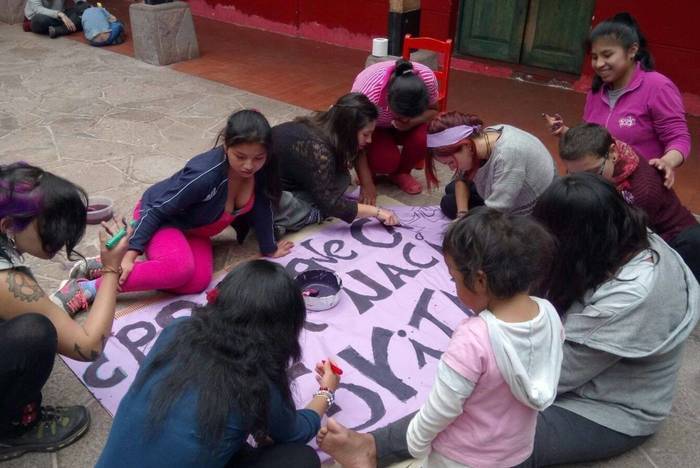07.01.2022/XNUMX/XNUMX / Tips & things worth knowing
Prevent culture shock abroad
“Other countries, other customs” is what they say and although this difference is part of the fascination that the foreign country has, it can cause difficulties for travelers or volunteers at the beginning. Here we give you helpful tipsHow you can prevent culture shock abroad.
Culture shock abroad
During your Volunteering abroad You will gain many new impressions in your host country, which will make the cultural differences to your country of origin clear. When the initial phase of excitement and wonder is over and you gradually develop a routine, you will discover that new and culturally appropriate behaviors have to be learned.
You may notice that the expectations, which you have placed on the country, are not fulfilled and completely different rules of the game apply there. For example, it is possible that this Value systemThe card that you bring with you from home does not have the same validity abroad. Findings of this kind can lead to a so-called culture shock, which is... physical and emotional discomfort manifests.
Typical symptoms of culture shock
- feelings of depression
- homesickness
- uncertainty
- rage
- insomnia
- Loss of self-confidence
Often there is also an idealization of one's own country, prejudices against foreigners, an identity crisis or isolation. But what can you do about it?
Tips for prevention
1. Prior to travel
In addition to the preparation by the organization (advice appointments, brochures), you should also do your own travel arrangements to meet. We recommend you to do well before you leave about the customs in your destination country, in order to be able to avoid faux pas later. Especially in developing countries, religion, tradition and customs are very important. For example, there may be traditional views of men and women that may take some getting used to initially for a foreigner, but which you should respect. In travel guides the culture and customs of the country are usually discussed in detail and it is advisable to read this part carefully.
Often help too dictionaries with typical words and phrases, with which one can overcome the first communication difficulties. You can also, of course, use numerous Internet forums Information and experiences of other travelers read and give you a first impression of your host country based on photos.
2. On site
Often it comes initially communication difficulties. The dialect, the unfamiliar pronunciation or your possibly small vocabulary can impair understanding. There are also situations where what is said is received differently than intended. Sometimes, for example, "yes" in an African language can mean something very different than affirmation. This can be very frustrating, but fear not: you will get used to everything over time.
So try to stay calm and not get discouraged! Especially in developing countries is the general Standard of living lower and in addition to the psychological challenge that confronting poverty poses to you, you should learn to deal with things such as disrupted internet reception or possibly not using running water, to handle flexibly. You should also be prepared for problems such as a musty mattress due to the high humidity or the like so that you can then react as calmly as possible. Try yourself to adapt to the new environment as best you can, respecting traditions and rules of politeness.
The Advice and advice from the RGV team you should always follow: these rules are designed to protect your health and safety. For things that you might not like or about which you might have different opinions, you should high tolerance bring along. That's how it can be Africa still be common in school to reprimand children with a cane on the palm. You should of course lead by example yourself and choose a more pedagogical path, but you should refrain from criticism and discussions.
Remember that these are developing countries and Some things take time. Everyday habits can also be irritating at first, for example holding hands in Africa, which can often be observed between women and men as well as between people of the same sex. This is a gesture of friendship and attachment and has nothing to do with advances or homosexuality. On the contrary: homosexuality is often not tolerated and kissing in public is also a no-go. Preferably Watch the locals and follow their behavior.
You should also have a big one Gelassenheit bring with you when it comes to punctuality, because in Africa, for example, the clocks tick differently and everyday things often run much more slowly than you are probably used to. Appointments may start late or even be moved to another day without notice. Of course, this can lead to annoyed waiting at first, but if you give it a go, you might even find a taste for African coziness. The more you engage with the new environment, the less alien and excluded you will feel.
If all of this becomes too much for you during your stay and you start to feel the symptoms of culture shock, try to focus on the things you enjoy about the foreign culture. You can definitely find something that excites you. Do not see the customs of the host country as good or bad, just different and try to adapt to them. It often helps too share experiences with others and see things in a new light. Perhaps the other volunteers have had similar experiences and found good ways to deal with them, or your friends back home can calm you down and give you new courage in a conversation.
Of course you always can contact the RGV teambut in the end you alone decide how to deal with the new situation and what experiences and feelings you take home.
3. After the journey
Back home, you can process the experiences and impressions you gained during your stay in different ways. Of course you can Share experiences in conversations with friends and family, for example with a photo diary. Or maybe you'd like to volunteer through one of the following review to give a first impression and to prepare them for what is to come. And maybe you will even find that you will miss some things from the other culture at home that caused you difficulties at the beginning.
10 pieces of advice to make it easier to settle down abroad
- Inform yourself well before the trip to avoid faux pas!
- Do not despair with communication difficulties: it will get easier with time!
- Adjust to a lower standard of living!
- Trust the RGV team and follow the advice and hints!
- Orientate yourself on the behavior of the locals!
- Focus on the things you like!
- Be flexible and adaptable!
- Stay calm and don't get discouraged!
- Talk to others about your experiences!
- After your trip, process what you have experienced through discussions and exchange!
If you prefer to move in more familiar waters, you can too Volunteering in Europe, practically around the corner.
More projects that interest you could
Have you not yet discovered a suitable program for your time abroad? No problem, we will present you more Volunteer projects abroadthat might pique your interest.
Are you perhaps still at the beginning of thinking about your trip and have no idea what might be right for you? Whether you want to go abroad as a volunteer for a short time, or if you prefer FSJ up to 12 months abroad afford? Maybe there is one Internship abroad in a specific subject area the best way for you to gain experience abroad?


Peru | childcare


Peru | women empowerment


Ghana | childcare

Uganda | community work
